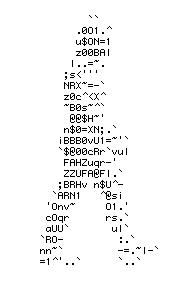The Role of the Delete Key in Blog - Der Daniel Weintraub-Fall
Bei der New York Times stellt man heute die Frage: Is a blog still a blog if someone else edits it?
Dabei geht es um eine Diskussion, die bereits in zahlreichen Blogs geführt wurde: Journalisten und Weblogs (siehe auch: Cyberjournalist.net, im Bloghaus, Eck.Punkte.log, ....... oder aber auch in der Netzzeitung, um nur einige zu nennen.
Lurking uncertainty about what standards should be applied to Web logs written by journalists bubbled to the surface last week after The Bee's ombudsman made public a recent decision by editors to screen Web log entries of Daniel Weintraub, one of the newspaper's leading columnists, before they are posted on The Bee's Web site.
Besonders interessant in diesem Zusammenhang eine Aussage von Paul Grabowicz, professor at the University of California at Berkeley graduate school of journalism:
Paul Grabowicz, a professor at the University of California at Berkeley graduate school of journalism, taught a class on Web logs last fall and said that while some question whether an edited Web log strays from the true nature of blogging, many of the traditional aspects of journalism and the new publishing medium are not incompatible.
"I think you can do a blog and retain journalistic standards without bleeding the life out of it and without sacrificing what is important about journalism," Professor Grabowicz said.
Jonathan Dube (managing producer bei MSNBC.com and Publisher of www.cyberjournalist.net) is organizing a discussion with journalists about blogging best practices for a conference of the Online News Association in Chicago next month. Professor Grabowicz says discussion is healthy but a rush to impose universal rules is not.
"What's most important to me is this is forcing us into a long overdue discussion about what journalism really is and what we're trying to accomplish with it," he said. "The worst thing is for somebody to come up with a standard that everyone is supposed to adhere to."
Hier gibt's den vollständigen Artikel zum Nachlesen bei der New York Times: The Role of the Delete Key in Blog
[Nachtrag 30.9.2003: Aufgrund der zahlreichen Reaktionen hat Tony Marcano, der Sacramento Bee- Ombudsmann, seine Kolumne dem Thema gewidmet:
Take this hypothetical situation: A newspaper allows one of its reporters to post an unedited blog on its Web site. The reporter posts comments that are blatantly offensive (racist, misogynistic, anti-Semitic, homophobic, take your pick).
Would the fact that those comments are posted on a newspaper's Web site amount to a tacit endorsement of those views? Certainly the newspaper would be legally liable for them, regardless of any disclaimer.
One argument is that the newspaper should trust its reporters to keep the blog discourse reasonable. But who gets to define reasonable? The blogger? Maybe, but then the paper risks disseminating information on the Web that it would never allow in print. The newspaper? Maybe, but if it deems the discourse unreasonable, the censorship issue rises again.
This may be a simple issue with a simple solution in the blogosphere, but newspapers are not in the same universe.
Dem steht folgende Aussage von Daniel Weintraub gegenüber:
Here's Weintraub's take on that: "Newspaper traditionalists need to realize that the online product is not simply an electronic version of the printed newspaper. It is an entirely different medium, more akin to radio and television than it is to print. Commentators on radio and TV are not edited. They say what they want, and if they overstep the bounds of decency or good taste, they face the consequences. A radio station that disciplines or fires a talk show host who screws up doesn't lose its credibility. It might even gain some.
"There is no reason that bloggers affiliated with newspapers could not follow a similar model," Weintraub continued, "as long as the Web site informs readers of the distinction. A Weblog is not the same as a printed column. It is a collection of quick, off-the-cuff reactions to breaking events, with an attitude. Those reactions can change over time as more facts are known. Some of those opinions are over the top. The readers know that. It's the nature of the beast. It's what they like."
Hier Nachlesen: The Ombudsman: Flogging by blogging: Sorry, editing isn't censorship -- By Tony Marcano -- Bee Ombudsman.
Dabei geht es um eine Diskussion, die bereits in zahlreichen Blogs geführt wurde: Journalisten und Weblogs (siehe auch: Cyberjournalist.net, im Bloghaus, Eck.Punkte.log, ....... oder aber auch in der Netzzeitung, um nur einige zu nennen.
Lurking uncertainty about what standards should be applied to Web logs written by journalists bubbled to the surface last week after The Bee's ombudsman made public a recent decision by editors to screen Web log entries of Daniel Weintraub, one of the newspaper's leading columnists, before they are posted on The Bee's Web site.
Besonders interessant in diesem Zusammenhang eine Aussage von Paul Grabowicz, professor at the University of California at Berkeley graduate school of journalism:
Paul Grabowicz, a professor at the University of California at Berkeley graduate school of journalism, taught a class on Web logs last fall and said that while some question whether an edited Web log strays from the true nature of blogging, many of the traditional aspects of journalism and the new publishing medium are not incompatible.
"I think you can do a blog and retain journalistic standards without bleeding the life out of it and without sacrificing what is important about journalism," Professor Grabowicz said.
Jonathan Dube (managing producer bei MSNBC.com and Publisher of www.cyberjournalist.net) is organizing a discussion with journalists about blogging best practices for a conference of the Online News Association in Chicago next month. Professor Grabowicz says discussion is healthy but a rush to impose universal rules is not.
"What's most important to me is this is forcing us into a long overdue discussion about what journalism really is and what we're trying to accomplish with it," he said. "The worst thing is for somebody to come up with a standard that everyone is supposed to adhere to."
Hier gibt's den vollständigen Artikel zum Nachlesen bei der New York Times: The Role of the Delete Key in Blog
[Nachtrag 30.9.2003: Aufgrund der zahlreichen Reaktionen hat Tony Marcano, der Sacramento Bee- Ombudsmann, seine Kolumne dem Thema gewidmet:
Take this hypothetical situation: A newspaper allows one of its reporters to post an unedited blog on its Web site. The reporter posts comments that are blatantly offensive (racist, misogynistic, anti-Semitic, homophobic, take your pick).
Would the fact that those comments are posted on a newspaper's Web site amount to a tacit endorsement of those views? Certainly the newspaper would be legally liable for them, regardless of any disclaimer.
One argument is that the newspaper should trust its reporters to keep the blog discourse reasonable. But who gets to define reasonable? The blogger? Maybe, but then the paper risks disseminating information on the Web that it would never allow in print. The newspaper? Maybe, but if it deems the discourse unreasonable, the censorship issue rises again.
This may be a simple issue with a simple solution in the blogosphere, but newspapers are not in the same universe.
Dem steht folgende Aussage von Daniel Weintraub gegenüber:
Here's Weintraub's take on that: "Newspaper traditionalists need to realize that the online product is not simply an electronic version of the printed newspaper. It is an entirely different medium, more akin to radio and television than it is to print. Commentators on radio and TV are not edited. They say what they want, and if they overstep the bounds of decency or good taste, they face the consequences. A radio station that disciplines or fires a talk show host who screws up doesn't lose its credibility. It might even gain some.
"There is no reason that bloggers affiliated with newspapers could not follow a similar model," Weintraub continued, "as long as the Web site informs readers of the distinction. A Weblog is not the same as a printed column. It is a collection of quick, off-the-cuff reactions to breaking events, with an attitude. Those reactions can change over time as more facts are known. Some of those opinions are over the top. The readers know that. It's the nature of the beast. It's what they like."
Hier Nachlesen: The Ombudsman: Flogging by blogging: Sorry, editing isn't censorship -- By Tony Marcano -- Bee Ombudsman.
Cyberwriter - 29. Sep, 14:09 - online Journalism
0 Kommentare - Kommentar verfassen - 0 Trackbacks





















Trackback URL:
https://cyberwriter.twoday.net/STORIES/79599/modTrackback